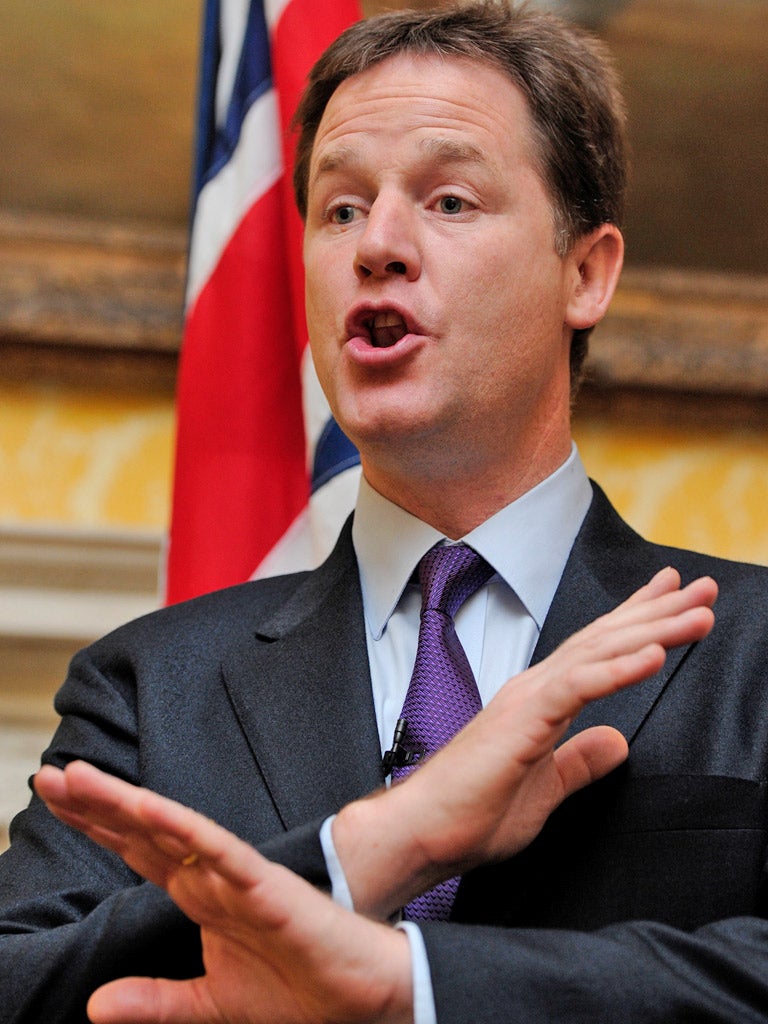Clegg rules out using taxpayers' cash to fund parties
Report expected to recommend £10,000 cap on individual donations to political parties

Nick Clegg has vowed to clean up politics by reforming the way parties are funded but has ruled out giving them an immediate injection of more taxpayers' money.
The Deputy Prime Minister believes that donors trying to buy influence over parties are the next scandal likely to engulf British politics. He will hold urgent talks with David Cameron and Ed Miliband in an attempt to broker a deal between the three main parties.
The leaders will discuss a blueprint for reform to be published next week by the independent Committee on Standards in Public Life, which will recommend a £10,000 cap on individual donations.
But yesterday Mr Clegg rejected the committee's proposal for up to £100m of state funding for parties over five years to make up for the income lost from a ceiling on donations. The Deputy Prime Minister told the Commons: "It is immensely important for us to clear this up, because it has affected all political parties negatively. But it would not be right to ask our hard-pressed taxpayers to pay more to political parties at a time when they are having to deal with so many cuts and savings elsewhere."
The Conservatives oppose greater state funding, a move long favoured by the Liberal Democrats. Mr Clegg's comments could make it harder to secure all-party agreement since a cap without compensation would reduce the income of all parties. However, he believes that reform is possible without more state aid. For example, parties could cut spending on election campaigns, raise more money from small donors and use the existing pot of about £15m a year of state subsidies more efficiently. Parties receive more state help in an election year through free postage and airtime for party political broadcasts.
Some Tory sources suggest Mr Cameron will delay reform because the status quo would protect his party's current financial advantage. The Tories stand to lose most from a £10,000 cap because they have more big donors, and want a £50,000 ceiling.
Join our commenting forum
Join thought-provoking conversations, follow other Independent readers and see their replies
Comments
Bookmark popover
Removed from bookmarks